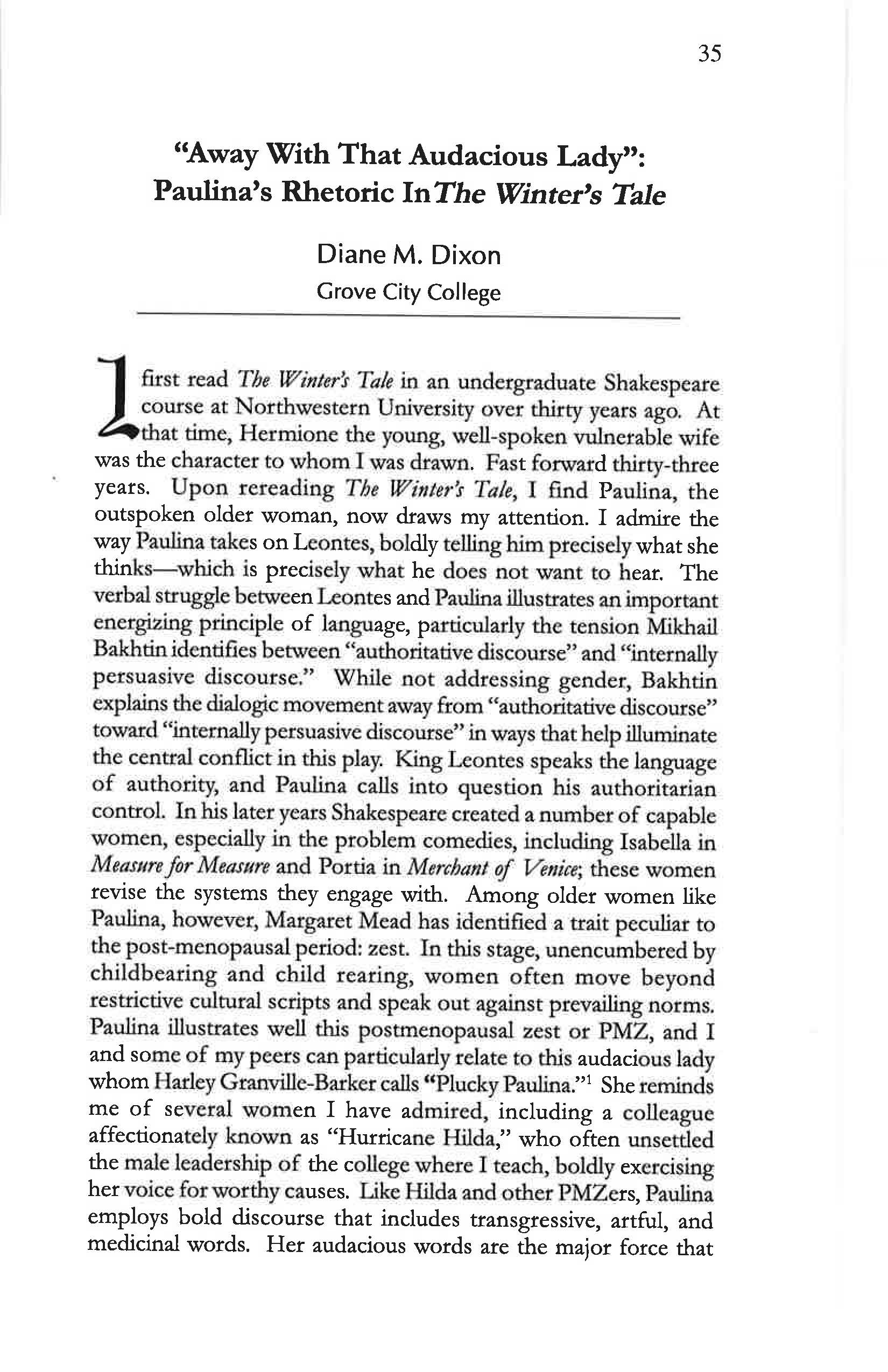"Away With That Audacious Lady": Paulina's Rhetoric In The Winter's Tale
Main Article Content
Abstract
I first read The Winter’s Tale in an undergraduate Shakespeare course at Northwwestern University over thirty years ago. At that time, Hermione the young, well-spoken vulnerable wife was the character to whom I was drawn. Fast forward thirty-three years. Upon rereading The Winter’s Tale, I find Paulina, the outspoken older woman, now draws my attention. I admire the way Paulina takes on Leontes, boldly telling him precisely what she thinks—which is precisely what he does not want to hear. The verbal struggle between Leontes and Paulina illustrates an important energizing principle of language, particularly the tension Mikhail Bakhtin identifies between “authoritative discourse” and “internally persuasive discourse.” While not addressing gender, Bakhtin explains the dialogic movement away from “authoritative discourse” toward “internally persuasive discourse” in ways that help illuminate the central conflict in this play. King Leontes speaks the language of authority, and Paulina calls into question his authoritarian control. In his later years Shakespeare created a number of capable women, especially in the problem comedies, including Isabella in Measure for Measure and Portia in Merchant of Venice; these women revise the systems they engage with. Among older women like Paulina, however, Margaret Mead has identified a trait peculiar to the post-menopausal period: zest. In this stage, unencumbered by childbearing and child rearing, women often move beyond restrictive cultural scripts and speak out against prevailing norms. Paulina illustrates well this postmenopausal zest or PMX, and I and some of my peers can particularly relate to this audacious lady whom Harley Granville-Barker calls “Plucky Paulina.”1 She reminds me of several women I have admired, including a colleague affectionately known as “Hurricane Hilda,” who often unsettled the male leadership of the college where I teach, boldly exercising her voice for worthy causes. Like Hilda and other PMZers, Paulina employs bold discourse that includes transgressive, artful, and medicinal words. Her audacious words are the major force that moves events in The Winter’s Tale from tragic disaster to healing recovery.
